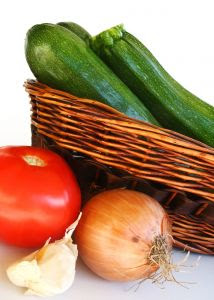 For millions of years, humans have farmed and raised organic food. That is, food grown and raised without the use of synthetic fertilizers, pesticides, fungicides and herbicides. The use of these synthetic growth aids has increased in popularity over the 20th century and has become so common food grown or raised in this way is now considered conventional.
For millions of years, humans have farmed and raised organic food. That is, food grown and raised without the use of synthetic fertilizers, pesticides, fungicides and herbicides. The use of these synthetic growth aids has increased in popularity over the 20th century and has become so common food grown or raised in this way is now considered conventional.A few key differences between conventional and organic produce are:
* Organic produce is not grown with any synthetic pesticides, herbicides, fungicides or fertilizers.
* Growing produce organically is better for the environment than conventional.
Organic produce typically has higher nutritional content and better flavor than conventionally grown produce.
A few key differences between conventional and organic meats are:
* Organic cows & chickens have access to fresh air and exercise; typically conventionally farmed animals do not.
* Organic animals are fed a diet rich in organic foods; conventional animals are typically raised on grains and cheaper feeds full of synthetic fillers
* Organically farmed animals live a life resembling that of the animal in its natural habitat.
* Organic meats often have less fat content then conventional.
* Organic animals are raised without the use of growth hormones
Eating organic is choosing to eat the way our ancestors did; respecting the earth and ourselves by the high-quality food we choose to eat.
Denver-area Sunflower Markets & Sprouts have a great selection of organic products. For a grocery store specializing in all natural and organic products; check out your Denver-area Natural Grocers.
source: www.examiner.com




0 comments:
Post a Comment